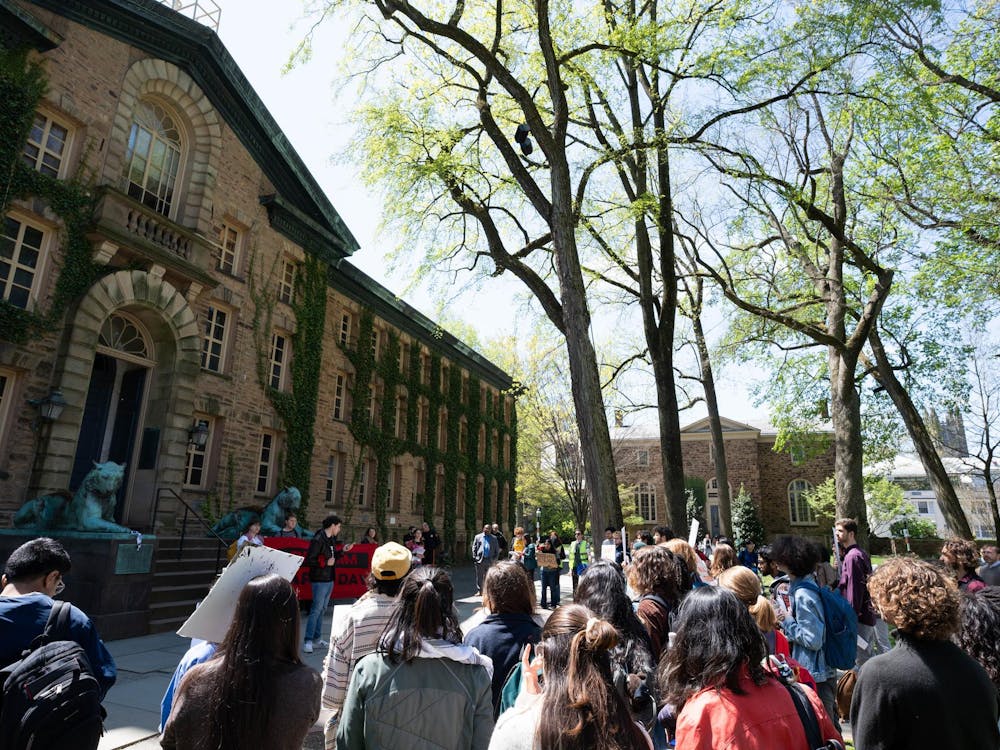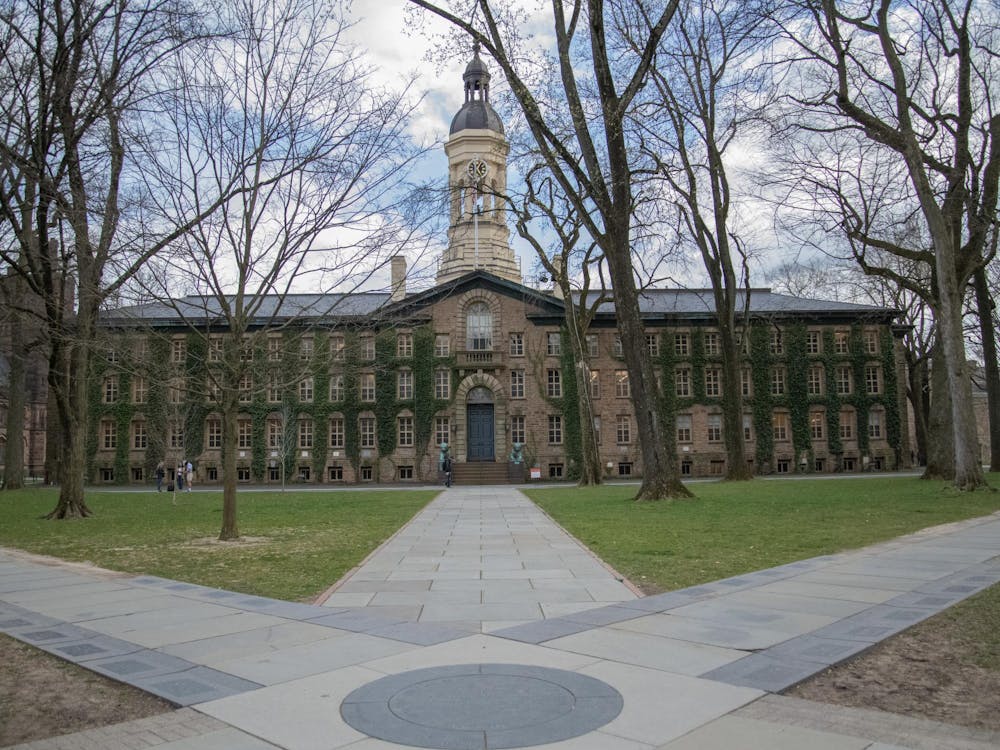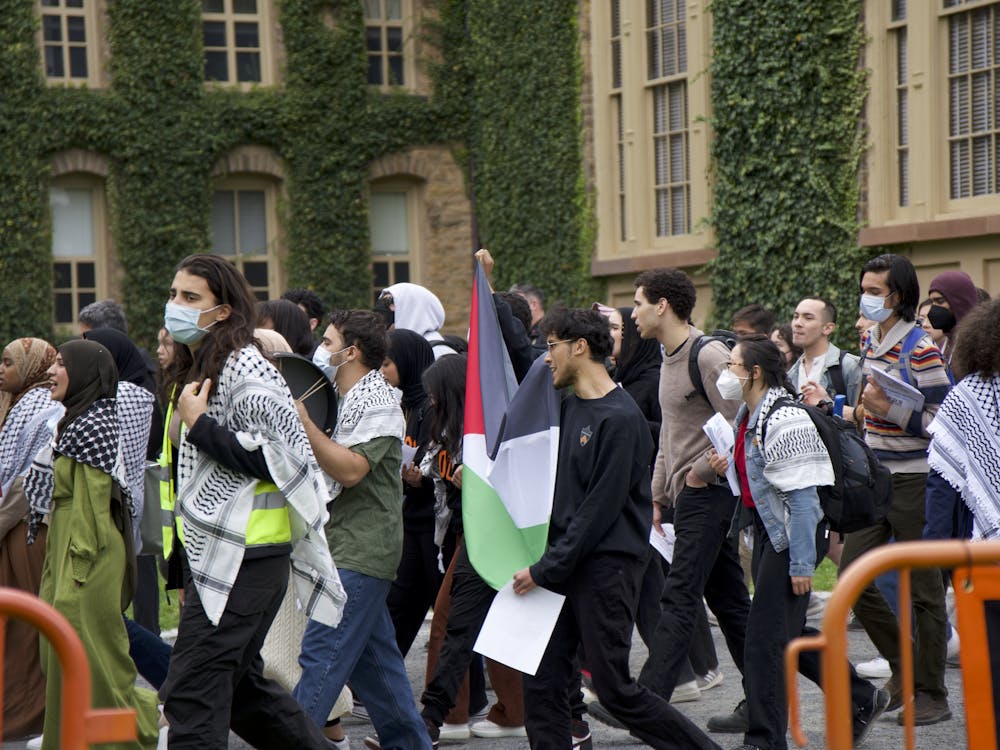Recently, Princeton has been the subject of bad press. Our most noted alumni include a First Lady who refuses to come to campus, a controversial senator who may have led a government shutdown and Susan Patton (whom I have no words to describe). To the media and general public, Princeton University is diseased — and not just by bacterial meningitis. Its students are plagued by rape, depression, misogyny, racism and privilege.
I am not publishing an opinion on these matters. I am pointing out an undebatable problem on campus. Princeton students don’t vote.
We love to talk about our political opinions in the press but don’t take advantage of rights we have for our voices to be heard. One percent of Princeton students voted in our district’s congressional primary elections in 2010. The share of college-aged students who voted in New Jersey’s last midterm elections was lower than the national average — 14 percent. When divided evenly, a little over one percent of all 18-to-24-year-olds were represented in each of the state’s 12 districts in 2010. The number of Princeton students who turned out in the presidential election year was slightly higher, but nothing to shout about.
With such poor participation in local elections, one would hope that Princeton students are politically active in their home states. Statistics do not exist to show the percentage of Princetonians who voted absentee in the last midterm election. But it is hard to imagine that undergrads — who do not even vote online in USG elections — would take the time send in ballots by snail mail. National eligible youth voter turnout, 23 percent in 2010, supports this assumption of apathy.
Low voter turnout is common on all campuses in the United States. But since when are Princeton Tigers the average bears? Don’t we pride ourselves on being the best college in the nation? Aren’t we supposedly top dog in the Ivy League?
We are far from first in the Ivy League when ranked by political participation. Eight hundred Yale students, compared to an estimated 50 Princeton students, voted in their district’s 2010 congressional elections. That’s 15 percent of Yale’s undergraduate population. Even with smaller numbers — 14 percent at the University of Pennsylvania and 3 percent at Harvard — other Ivies topped Princeton’s undergraduate voter turnout.
Now compare the Ivy League to the rest of the country. None of the top schools, including Princeton, are ranked as politically involved by The Princeton Review (ironically unaffiliated with our university). The George Washington University leads in activist students, with schools like Georgetown, American University, the University of Chicago and Vassar rallying behind.
I am sure that each of you has left a class, precept or paper at Princeton without hope for politics. Your professor has finished a lecture with the phrase, “it all depends,” and conflicting theories have argued in your head until you have given up on seemingly unsolvable issues. (Engineers avoid these topics altogether.) But you know that we can solve major theoretical problems with small, practical solutions.
The University falls into New Jersey’s 12thcongressional district. If you follow politics — or watch Stephen Colbert — you may know that Rush Holt has been our congressman for the past eight terms. Rush Holt was a physicist and advocate of education and the environment (as well as a Libra and combatant of “sharknadoes,” according to Colbert). With Holt’s retirement, we will lose a smart and generally well-liked elected official in Washington. Princeton students have a responsibility to ourselves, our town and our nation to have a say in replacement representation.
And our votes will matter. About 15,000 people vote in New Jersey’s 12thdistrict primaries in non-presidential election years. Theoretically — and I know you love theorizing — if every student voted on June 3, Princeton undergrads could pick our own candidate to run in the November midterm elections.
The influence we have over upcoming Princeton elections makes it important to identify politically with our current home — the one we will return to for Reunions revelries year after year. It is easy to register and vote by mail in this district using your Frist Campus Center address. You can make the switch for the entire time you live in Princeton, or for one election. As our yearly festivities and resumes show, Princeton will be a part of us forever. So, why not be a part of Princeton forever?
Further, why not make Princeton a place that you are proud to identify with forever?

It is time to silence what everyone is saying about Princetonians and make our voices heard. Let’s end the loud debate over our character by proving that we care about more than the words written on our resume and in the papers. Let’s showthat we are committed to the improvement of our community and our country. A quiet commitment to Princeton and 10 minutes spent by each of us would make a powerful statement. Register to vote in the upcoming elections by May 13, and have your opinion heard with a ballot.
Morgan Nelson is a politics major from Key West, Florida. She can be reached at morganbn@princeton.edu.








